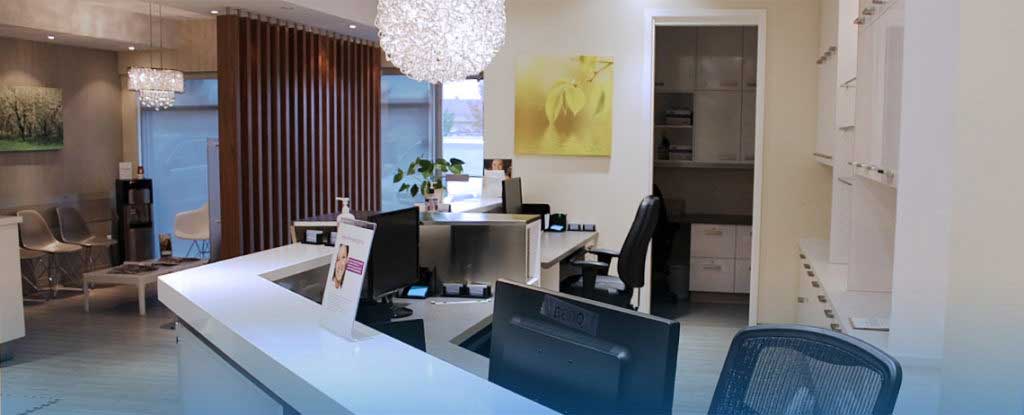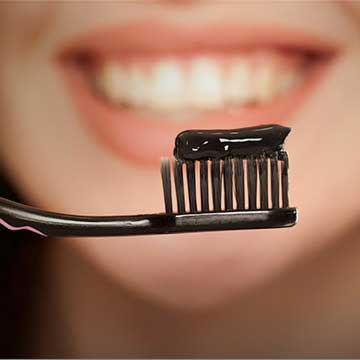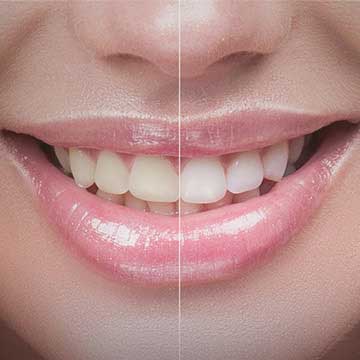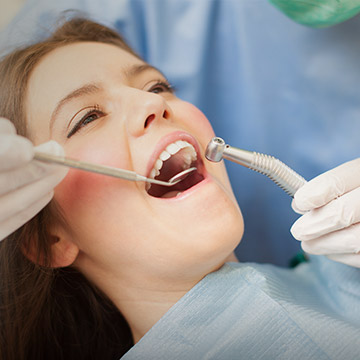Has your dentist talked to you about your wisdom teeth during a regular exam? When these teeth grow in, they can cause complications like infections. While you may not need to rush in for emergency treatment, however, you should see your dentist as soon as you can.
In the time before you can visit your dentist, it’s important to learn the symptoms of wisdom tooth infection. Let’s learn more about the signs of infection and potential treatments.
How does a Wisdom Tooth Cause Infection?
A wisdom tooth can cause infection or a toothache for a variety of reasons. These teeth are harder to clean because they sit at the back of the mouth and food can become trapped between the teeth and gums. They can be easily missed when brushing and flossing.
Wisdom teeth can become impacted when there isn’t enough space to properly develop. These teeth may partly emerge from the gums (partially impacted) or they may not emerge at all (fully impacted).
Partially impacted wisdom teeth have a higher risk of causing a gum infection. Bacteria can easily become trapped around partially impacted wisdom teeth and cause pain and swelling. This condition is also referred to as pericoronitis.
Signs of Wisdom Tooth Infection
Your wisdom teeth may grow in easily without issue, but if they become infected they can cause a great deal of pain. If you experience any signs of infection, you should see your dentist as soon as possible. Some symptoms of wisdom tooth infection include:
Red Or Swollen Gums
Red, swollen gums are a tell-tale sign of a potential wisdom tooth infection. Until you can see your dentist, keep your teeth clean and avoid irritating the affected area. Some may find relief by using a mild saltwater solution.
This solution is made by mixing one teaspoon of salt into one cup of warm water. Swish a small amount of the solution around your mouth and spit it out afterwards. This can be especially helpful after eating to keep the affected area clear of food debris.
Tender Or Bleeding Gums
Your gums can feel tender or even bleed due improper cleaning of the area. If your gums bleed significantly around your partially erupted wisdom teeth it is likely they are not being kept clean enough.
Bad Breath
Your breath can be impacted by excess plaque and food debris. Partially impacted wisdom teeth often have a flap of gum tissue over them that traps food and plaque. This allows bacteria to grow and contribute to bad breath and possible infection.
Until then, an antibacterial mouthwash as well as careful oral hygiene can help any bad breath you’re experiencing. The mouthwash will also help keep your wisdom teeth clean and reduce inflammation.
Tooth Pain
If an erupted wisdom tooth (one that you can see in your mouth) develops a deep cavity this can cause tooth pain or a dental abscess. Patients can develop swelling and pain around an abscessed tooth.
Jaw Pain and Difficulty Opening Your Mouth
You may experience jaw pain when you have an infection, this is likely caused by swelling in the area. This pain can affect your ability to continue through your everyday life. Until you can see your dentist, relieve any pain with over-the-counter medication such as Tylenol and Advil.
Swelling Around The Jaw
A cold compress is your best option if you experience any swelling around your jaw. Place ice or a cold pack wrapped in thin cloth on your cheek near the affected area for 10 to 20 minutes at a time. This can be used alongside pain medication to stay as comfortable as possible until your dentist appointment. If you are experiencing swelling that is below your bottom jaw or affects your ability to swallow this is a medical emergency and requires immediate care.
These common symptoms all indicate a trip to the dentist is needed. At your appointment, your teeth will be examined and X-rays will likely be taken to assess how your wisdom teeth are affecting you.
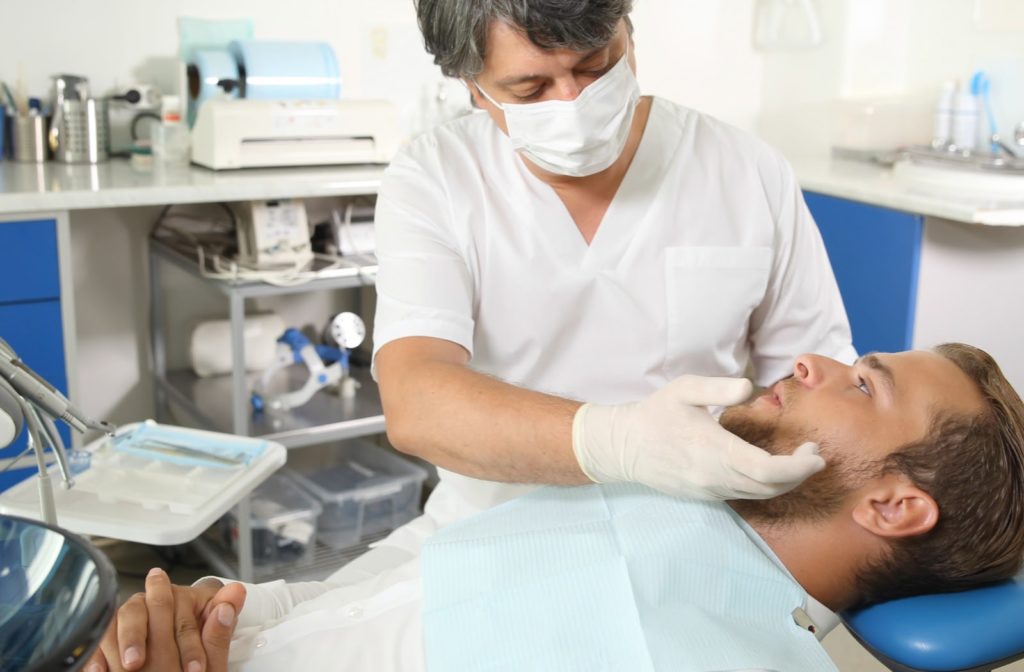
Treatment of Wisdom Tooth Infection
The appropriate treatment for your wisdom teeth is determined by the diagnostics performed at your appointment. After reviewing your X-rays and examining your mouth, your dentist will recommend the most effective treatment plan. Going forward, care can include treating the infection, repairing the tooth, or removing the tooth.
Treating the Infection
The first step of treatment may include antibiotics, which are often used to treat a swollen gum infection around a wisdom tooth (pericoronitis) or a dental abscess. In many cases cleaning the area adequately and removal of an impacted wisdom tooth will treat the problem. Not every case of gum irritation around a wisdom tooth will require antibiotics.
Removing the Wisdom Tooth
Your dental professional will likely recommend the removal of your wisdom tooth if you have a dental abscess or gum infection. Many people have their wisdom teeth removed because of the angles they are growing in. One or all of your wisdom teeth may be removed to prevent future infections and cysts that can develop around impacted wisdom teeth. Your dentist can refer you to a specialist if needed.
Whichever treatment is used, an infected wisdom tooth needs to be dealt with swiftly. If you experience any signs of an infection, visit your dentist.
Visit Your Dentist
Some of the symptoms of wisdom tooth infection may not seem concerning at first, but the longer you wait to take action, the worse you may feel. Book an appointment with your dentist if your symptoms persist and take care of your teeth until then.



